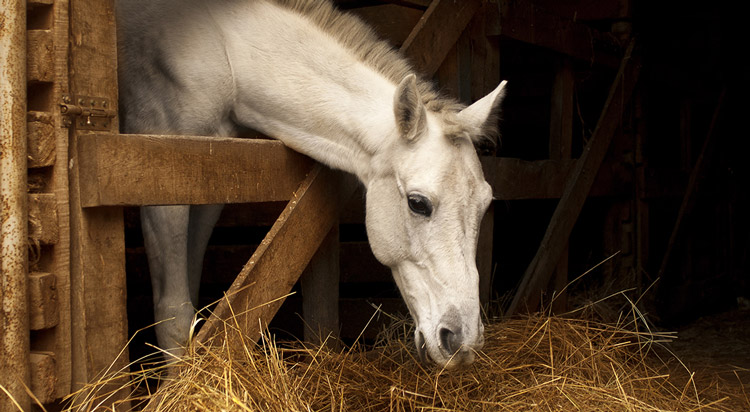

Right to Farm Protection of Equine Activities
By Nicole L. Voigt, Esq., Attorney at Law
An equine facility might qualify for Right to Farm protection and obtain relief from local ordinances in limited respects, such as municipal zoning restrictions. Such protected activities may include equine labor housing, manure composting and sales, and keeping horses onsite for various commercial purposes, such as breeding, boarding, and training. However, to enjoy the protection of Right to Farm, the facility must meet the definition of a “commercial farm” and the equine activities must conform to agricultural management practices of the State Agriculture Development Committee (SADC).
To qualify as a commercial farm, the land on which an equine facility operates must be eligible for farmland assessment. The land under buildings used for boarding and rehabilitation will not independently qualify. Instead, such buildings must exist along with other qualifying agricultural production on at least five additional acres.
Examples of qualifying agricultural activities commonly occurring alongside commercial stables include pasture for horses and livestock, hay production, or traditional agriculture, such as food or grain production. When pasture is used to qualify for farmland assessment, a per acre value of the land may be imputed depending upon the soil rating, and more than five acres of additional land in agricultural use will likely be required. For the purpose of farmland assessment, income from boarding will not be considered for farmland assessment eligibility unless there are five or more acres qualifying by other, eligible activities.
Farmland assessment and commercial farm certification are not the same. The income necessary to qualify for Right to Farm protection exceeds that which is required for farmland assessment. While fees from boarding and training may supplement income used to qualify for farmland assessment, such fees do not count towards commercial farm certification.
To be a commercial farm eligible for Right to Farm protection, the farm must produce agricultural/horticultural products worth $2,500 or more, annually. Examples of equine production which qualifies towards the $2,500 minimum requirement are income from raising or breeding horses, stud fees, and income imputed to acreage of pasture. To meet the threshold, equine-related income may be combined with other agricultural production, such as hay or crop production.
To be found a commercial farm, the farm must also be located in an area where, as of December 31, 1997 or thereafter, agriculture has been a permitted use under the municipal zoning ordinance, or the farm must have been in operation as of July 2, 1998.
Qualifying commercial farms may engage in protected equine activities subject to compliance with the SADC conditions applicable to those activities. Whether it be manure composting, equine labor housing, or other protected activities, it is important that the applicable conditions be understood. For example, equine labor housing must be located in the same building as the horses, themselves, subject to additional conditions.
When desired or necessary, an application may be made to the County Agriculture Development Board (CADB) to confirm commercial farm status and Right to Farm eligibility specific to the equine facility. The CADB also has primary jurisdiction over complaints against commercial farms, including zoning complaints.
The considerations of traditional land use versus farming applications are many. In some cases, it may be necessary or even preferred to make an application to a municipal zoning or planning board, rather than pursue an application under Right to Farm. In other cases, a farm application to the CADB may be the only means by which the facility will be protected, assuming it qualifies. When determining a strategy for obtaining approval of equine facilities, or identifying an appropriate property on which to locate an equine facility, work with an attorney familiar with real estate, land use, zoning, and Right to Farm.
Attorney Nicole Voigt is an experienced agricultural and traditional land use attorney who assists farmers, businesses, and real estate investors with buy/sell transactions, planning, compliance, complaints, and permitting. Nicole has a trusted network of professionals deeply experienced in the agricultural and agritourism industries, and she enjoys working with farmers and their professionals in furtherance of the farmers’ objectives.
THE INFORMATION CONTAINED HEREIN IS GENERAL INFORMATION, IS NOT LEGAL ADVICE, AND DOES NOT CREATE AN ATTORNEY-CLIENT RELATIONSHIP. YOUR SPECIFIC FACTS AND CIRCUMSTANCES MUST BE CAREFULLY REVIEWED WITH A RETAINED ATTORNEY PRIOR TO REACHING LEGAL CONCLUSIONS.
You may contact Nicole at (908)801-5434 or info@nlvlegal.com. For more information, visit www.voigtlawoffice.com.




